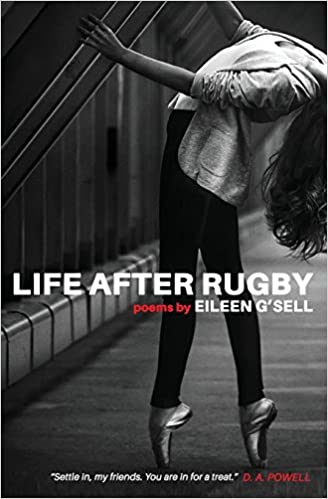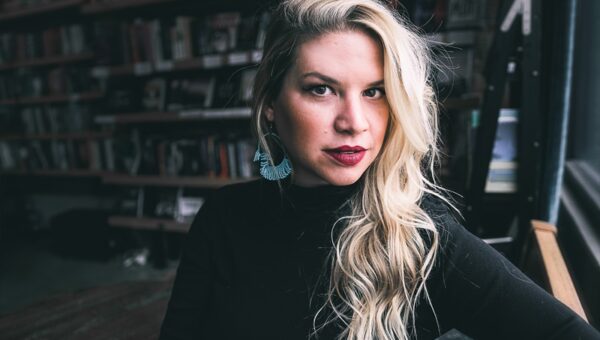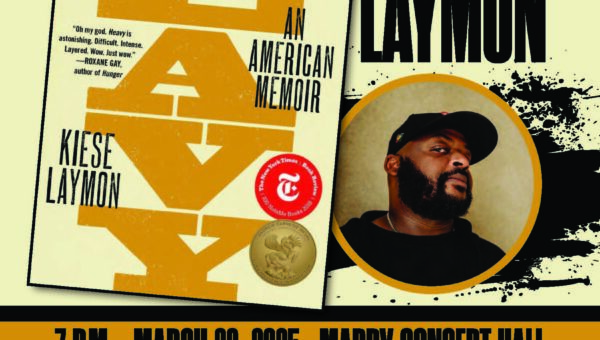Eileen G’Sell’s Life After Rugby (Gold Wake Press, 2018) comes to us from the other side of agitation, suggesting that there will be a postscript to an age when we are hearing people raise their voices against sexual assault, gun violence, racial profiling, wage inequality, and other forms of injustice, for these poems position us within a “life after.” Certainly, women and people of color still have a way to go, G’Sell knows, but oh the ways to go out: “Waffles! Sharks! Motorcycles!” A wry sense of humor undercuts this subtly layered social analysis with such daring that it bolsters a cynic’s spirit. G’Sell offers titles like one-liners and levity like a Kleenex because she knows that it takes empathy as well as goading to admit how often we misrepresent, judge, fail, and utterly depend on one another.
At times, these poems address the reader directly. Other times, they narrate stories of the time “the sky turned carbonated,” the beautiful mattress man left his bed, and days when “the whole sky sighed soprano,” before Whitney Houston died at forty-eight. All serve to illustrate the speaker—at times as “a happy little girl,” and others ready “to rip you in half / to prove that I am hungry.” A composition of opposites, she reflects the whole world, which is watching, being watched, or ignoring you in turn.
Although hers is the voice of a dynamo, she is never merely heard. She also sports a Sugar Ray Leonard bob and shades hip enough to be praised by Gwen Stefani. She embodies the modern, falling in love equipped “With enough sparkling water to last the weekend.”
The opening poem, “Follow the Girl in the Red Boots,” suggests one way to read these poems. The girl with the red boots is alive with color in a place very like the page, in that it is “weird, sexless, and white.” She serves as a guide, because she can draw a map of this place the speaker confesses to being from, along with “plenty of people.” The phrase echoes as the last line of each stanza, emphasizing the masses that threaten to wash out even one who is “as smart as snow on Valentine’s night.” The splash of red is not the only reason the girl with the stolen boots stands out. Just listen to this singular voice, the speaker prompts, as she rides “the soar of her certain song.”
In case the need for a revolution is not clear, the poem that follows, “Women and Children,” stages one. “There were boats we used to put them in,” G’Sell writes, alluding to the lifeboats used to save the title’s demographic from a sinking ship. “But when time came to take them back, no one knew what to talk about.” Giving crafts of their own to the rescued caused them to drift and develop “ways with words, with wind, with flame,” so that they grew estranged from the rest. Did we expect life after rugby to be the same? It would seem so only to those who failed to noticed that “on quiet horses, the women and children are storming the city.”
Many reclamations of power occur in the book, as the speaker seizes agency. One early recovery happens with the poem titled: “All Epics Are Disappointing, and All Disappointments Are Epic.” The tongue-in-cheek title lends the authority of Homer to the speaker on the sheer weight of her feelings. Even those who are not heroic warriors are licensed to be heard and even celebrated by the neutralizing effect of ambition, which dwarfs everyone equally in relation to the actual stars. But, being heard or lauded perhaps misses the point, G’Sell suggests with the line: “In the end, your horse will fall, your quest will fail to carry.” Heroism has not saved men from suffering, so she does not seek to replace it with heroinism but something beyond all that, another way of being altogether.
G’Sell makes light of serious subjects, because light illuminates. With the insight of a comic she tells it like it is, because “Maybe you don’t notice this.” Maybe you don’t notice the effects of gentrification or sexism. Maybe you haven’t seen the desperation of a racehorse “sweaty and foaming at the mouth,” in yourself and Western culture. It’s easy to overlook someone else’s sacrifice or hardship; but we don’t ignore another’s bliss. What if we inverted the whole paradigm, she hints. What if rich men, rather than the homeless, were invisible? What if the one who “takes one for the team” were named Euphoria and it was glorious? The ingenuity of this book, is that G’Sell grasps that we may have sold ourselves so well we can buy ourselves back by rebranding gender parity, racial justice, mutual respect. We just have to make them look good. Put different models in song lyrics and subway advertisements, poems, fashion magazines; it doesn’t matter how it comes to us:
Change dropped from another’s suit
Will glisten if you keep it.




